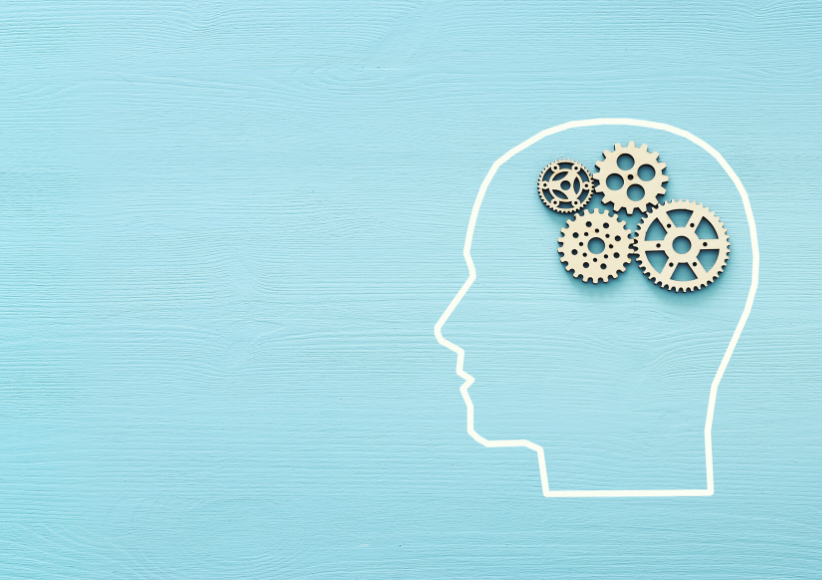
Credera’s employees have been working from home for over two months now. We’ve always been a firm that deeply values face time, so this has fundamentally changed the way we work. From an infrastructure perspective, we were well equipped to transition to a 100% remote workforce quickly. But as we settled into our work-from-home environment, we noticed a new set of challenges we’d never experienced before.
We’ve seen a variety of obstacles and struggles related to COVID-19 that were not unique to any experience level, job focus, or location. While trying to address this, we realized no one was fully prepared to navigate this season and there wouldn’t be a silver bullet that would meet every need. But we have been able to put together recommendations to meet our employees where they are and help them with their unique situations, garnered from experts in mental health, emotion, trauma, shame, organizational and positive psychology, and resilience, as well as what’s worked for our own leaders.
We shared this content originally for our internal soft skills development club, Speakeasy, where company leaders share knowledge on everything from communicating visually, working with teammates, and even staying sane in not-so-sane times. In this effort to serve and care for our people, we created a three-step approach that centers around the theme of an oxygen mask (specifically, the guidance flight attendants give regarding your oxygen mask pre-flight). We hope you can find inspiration from this approach.
Give Yourself Grace
One of the most important things you can do during this season is to give yourself grace — keeping in mind what we’re experiencing is unprecedented and full of uncertainty. Due to this, the stress associated with our current experience is hard to both identify and manage.

Image + content credit: Alexis Rockley and Liz + Mollie
Additionally, many of us have been trained from an early age to suppress or mask our emotions, which does not serve us well during this season. It is vital we revisit this strategy to take the time to process our feelings and emotions. Dr. Marc Brackett encourages us to develop emotional literacy—as our emotions affect everything from attention capacity, decision making, relationships, and physical and mental health. We recommend you create daily rhythms so that you consistently assess your emotions and understand how they evolve and change based on our experiences. Our willingness to experience our emotions leads to more self-awareness and prepares us to face whatever comes our way in life.
Put On Your Oxygen Mask

Image + content credit: Larosa Parent Coach
Be sure to address your own mental health before you look to care for others. Just like you are instructed on an airplane, put on your oxygen mask first before helping others. The exercise of putting on your oxygen mask will ensure you practice various mental health checks along with self-awareness and self-care activities.
Analyze Your Current State of Mental Health – Take an emotional inventory, and then do it every day. Make sure you are allowing yourself to experience all emotions. We learned from Liz and Mollie that taking a step back and recognizing the emotion you’re experiencing and why it might be happening is a great start. Next, create a list of everything you’re worried about, and label each one as either “within” or “beyond” your control. Separating what you can and can’t control is a small way to lift weight off your shoulders.
Grow Your EQ (Emotional Intelligence) – Emotional Intelligence (EQ), a framework created by researchers Peter Salovey and John Mayer, includes the ability to recognize and manage our emotions that drive behavior and understand that our emotions have a positive or negative impact on ourselves and others. To start with your EQ focused on yourself, practice recognition by assessing what you see (how am I accurately perceiving my emotions?) followed by acknowledging what you do (how am I managing my emotions and behavior productively?).
Assess for Feelings of Loneliness – Former U.S. Surgeon General Vivek Murthy found that loneliness was a crisis long before COVID-19, which inspired his recently released book Together: The Healing Power of Human Connections in a Sometimes Lonely World. He shares that loneliness is the gap between the connections you have and the connections you need. Especially during this time, it’s important to understand that loneliness is completely independent of isolation, but isolation can influence loneliness. Knowing this can help you identify what connections you should intentionally pursue (at work and outside of work) so that isolating yourself during quarantine does not cause you to experience loneliness.
Understand Your Wellness Gaps – Sarah Blalock, professor at Texas State University, walked us through the five bases of wellness we need to attend to—which include: exercise, food and nutrition, sleep, social support, and cognitive stimulation. You should identify which areas need the most investment for you to be experiencing full wellness by self-rating yourself on a scale of one (I’m not focusing on this area at all) to 10 (I’m in my best state of wellness in this area).
Actively Work to Close Your Gaps – Once you’ve identified the areas you need to spend more time on, create an action plan and accountability system to work to close your gaps. You can do this by setting goals and creating rituals that will set you up for success—examples include:
Exercise: Committing to exercising a certain time each day or a certain number of days each week.
Food and nutrition: Meal prepping on Sundays to ensure you have healthy food to eat during the work week.
Sleep: Setting a reminder to go to bed earlier than you have been to get a full night’s sleep.
Social support: Reaching out to one person each day to check in and catch up.
Cognitive stimulation: Planning to read one new book in a reasonable timeframe for you (e.g., one month, every other month, etc. )
Practice Positive Psychology and Actively Work to Limit Anxiety –
Positive psychology focuses on positive events and influences in your life and includes positive experiences (happiness, joy, inspiration, and love) and positive states and traits (gratitude, resilience, and compassion). Limit anxiety by pursuing calm, which is not a steady state of being, as Brené Brown shares: Calm is perspective, mindfulness, and the ability to manage emotional reactivity. Seeking a state of calm with this in mind can protect you from the anxiety that can easily creep in as you watch the news or reflect on the current state of the world.
Pursue Meaningful Social Connections – Research shows that social connectedness often drives an upward spiral of positive emotions and can improve mental health and mental and emotional well-being. During this season, combat isolation and check in with others more frequently, keep up normal social routines with coworkers, and look for ways to care for (and be cared for by) others.
Build Resilience –
Resilience is the capacity to recover quickly from difficulties. Adam Grant says there is not a fixed amount of resilience you have—building resilience is a skill set you work on throughout your life. In times of adversity, you gain perspective, which brings appreciation and gratitude, and it helps prepare you for future difficulties. During this season, we recommend focusing on how you’re growing and learning through the adversity and challenges you’re facing so that you can come out of this season stronger.
After Your Oxygen Mask Is On

Image + content credit: Liz and Mollie
Once your oxygen mask is securely fastened, you can continue to strengthen your mental wellness and start to help others.
Participating in Spreading Positive Emotional Contagion –
Remember that panic spreads and that emotional contagion—the mechanism by which people’s emotions “go viral” within groups—can influence others’ thoughts and actions. Awareness of negative emotional contagion is a form of prevention as it gives you power to do something about it versus letting it influence you. With this knowledge, you can feel more prepared and in control so you can counteract it with positivity and optimism when you’re collaborating with others.
Practice Perspective Instead of Comparative Suffering –
Brené Brown’s research on shame found that empathy (which is other-focused) does not work well with shame (which is self-focused). That is why perspective is more important than practicing comparative suffering, which is when one feels the need to see one person’s suffering in light of other people’s suffering. Perspective is more focused on gratitude for what we have, not pretending our struggles don’t exist. Try to keep this in mind as you seek to empathize without trying to minimize the challenges you’re experiencing during this season.
Grow Your EQ With an Emphasis on Others – Learning how to manage your emotions for yourself will give you insight to help you process and influence the emotions of others and create better human connections. To strengthen your EQ focused on others, practice recognition by assessing what you see (do I accurately perceive and understand the emotions of others?) followed by acknowledging what you do(do I work well with others and impact others effectively?).
Creating New Mental Wellness Habits
If we’ve learned anything during this season, it is that we are all in this together. Knowing that quarantine and social distancing naturally produce isolating experiences, we need to actively pursue connection and intentionally support each other—and we can do both most effectively if we’re taking care of ourselves first. We believe wholeheartedly that mental wellness is important to practice and pursue at all times, so our hope is that these recommendations can be adopted and embraced long after we get to the other side of this pandemic. If you have questions or would like to discuss this with us further, please feel free to contact findoutmore@credera.com.
Contact Us
Let's talk!
We're ready to help turn your biggest challenges into your biggest advantages.
Searching for a new career?
View job openings

